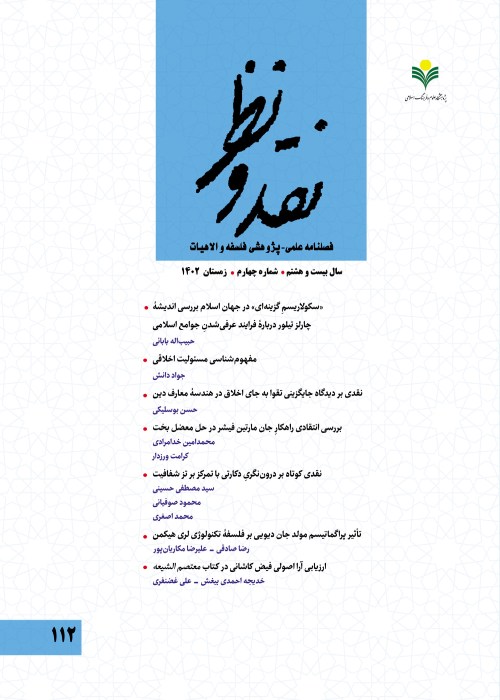The Epistemology of Love in Rūmī’s Mysticism: An Analysis in light of the Phenomenology of Husserl, Heidegger, and Merleau-Ponty
Philosophically speaking, emotional knowledge—hence mystical knowledge based on love of God—was not properly considered in Western philosophical tradition. According to the predominant view in this tradition, there is not much relation between emotions and feelings, on the one hand, and great acquisitions of “pure” knowledge, on the other. On this approach, knowledge is conceived as “adequacy or maximal match” between “mental representations” and certain “essences” in the external world. This is to say that, fcontrary to “language” and “sensory data,” emotions never represent anything—indeed, they amount to more than “mental responses” to objects. This has resulted in ignorance, within this tradition, of the role of human emotional dimensions in acquisition of knowledge. Thus, Western intellectuals were motivated to revise the concept of knowledge and ways of its acquisition. In the meantime, Husserl identified the notion of “intentionality” as the most important feature of consciousness, which opened a new window to the notion of knowledge. Moreover, in his peculiar phenomenology, Heidegger showed that there is a notion of “knowledge” which is more authentic than “efficient representation.” For Heidegger, knowledge is “openness.” Hence, emotions “open” to us how things are. This paper aims to analyze the function of love as the strongest and the most exciting emotion. To do so, we deploy the phenomenological method in light of the phenomenology of Husserl, Heidegger, and Merleau-Ponty, we seek to learn more about emotional and romantic knowledge in Rūmī’s Mathnavī. Results of a phenomenological analysis of Mathnavī’s poems confirm the possibility of gaining mystical knowledge of “love” through mystical reduction and intentionality. They show that not only is mystical knowledge possible, but is a way of knowledge largely ignored in the Western philosophical tradition.
- حق عضویت دریافتی صرف حمایت از نشریات عضو و نگهداری، تکمیل و توسعه مگیران میشود.
- پرداخت حق اشتراک و دانلود مقالات اجازه بازنشر آن در سایر رسانههای چاپی و دیجیتال را به کاربر نمیدهد.


